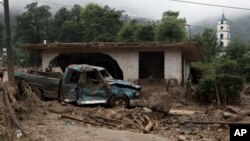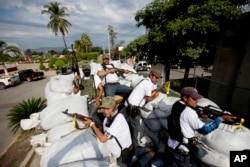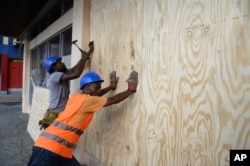High levels of violence and inequality complicate the challenge of managing humanitarian risks in Latin America and the Caribbean, a region that is not investing enough in keeping its people safe, said a top Red Cross official.
As the Caribbean hurricane season approaches, Walter Cotte, Americas director for the International Federation of Red Cross and Red Crescent Societies (IFRC), said the region was making use of early warning systems and was better positioned to deal with the wrath of huge storms, but still needed to spend more on preparing for natural disasters.
“We are advancing enough in response, the problem is we’re not advancing enough in prevention,” Cotte said on the sidelines of a recent U.N. disasters conference in Cancun. “This is a gap, and we’re condemned to pay for response instead of investing in prevention.”
Many issues, but violence is No. 1
He listed tackling violence as the top priority in a region where gangs rule the streets of many towns and cities, and murder rates have been on the rise.
Latin America also needs to combat high rates of road accidents, hydro-meteorological problems like water shortages, and unhealthy lifestyles, whose effects such as obesity are proving expensive to tackle in the world’s most unequal region.
Honduras, which is struggling to contain drug-fueled gang violence and organized crime, is one country where the Red Cross is helping thousands of people who are fleeing, and is even working with gangs such as the Mara Salvatrucha (MS-13) to try to reduce violence, Cotte said.
“We are focused on resilience, and this long-term approach is really creating a new way to offer solutions to communities,” he said.
Caribbean making progress
While low-lying Caribbean islands, among the most exposed to rising sea levels and other climate change impacts, are making progress in adapting, more resources are needed to improve technology and coordinate fragmented disaster response, Cotte said.
Comparing the impact of last year’s Hurricane Matthew on Haiti where up to 1,000 were killed while mass evacuations in Cuba avoided deaths, Cotte said greater cooperation between governments, business and aid agencies in the region was key.
“Now the hurricane season is stronger and more frequent. ... The impacts are very big, and if you’re not yet at the level of preparation required, (it) will be worse for your population,” he said.







